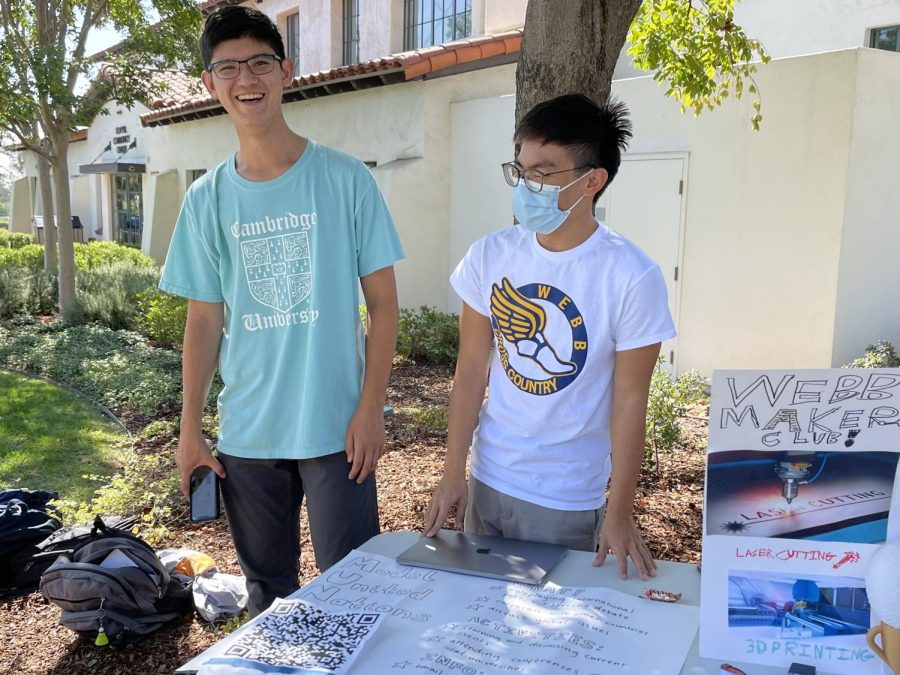At first sight, leading a club might not seem like a strenuous and time-consuming extracurricular activity; the only thing required to start one is filling out an application. With less than 10% of club applications denied, Webb students presented a mind-blowing number of clubs this year: 40 returning and 38 new clubs.
Although launching a club is an easy process, keeping the club active becomes a struggle for many club leaders. When it comes to juggling academic responsibilities, leadership positions, and club engagement, sustaining a club often takes a back seat. Unable to be managed properly, many clubs end up disappearing by the second semester.
“I would say about a quarter of clubs didn’t do anything more than just have their first club meeting,” said Ken Rosenfeld, Dean of Campus Life.
Searching for the perfect formula of extracurriculars to get them into a good college, some students start clubs with the sole purpose of filling a college résumé. Many clubs end up only existing on paper. Before establishing a club, potential leaders should ask themselves, “If I could not put it in my résumé, would I still be running this club?”
Aside from unproductivity, clubs created without genuine interest in the subject lose their potential to be appealing to colleges.
“Clubs are not just checkboxes to take off; they are opportunities for you to learn more about yourself,” said Anthony Shin, Associate Dean of College Guidance.
However, the key to successfully sustaining a club goes beyond having a passion for its purpose and a desire to achieve its goals. Leading a club involves resolving a handful of organizational challenges, from finding a convenient time and accessible meeting location for club meetings to balancing club activities with the academic work overflow.
There are several simple tips regarding the organizational side of leading a club that can help the new leaders keep their clubs active throughout the year.
1. Identify the club’s mission and commit to it.
Before completing the application, consider whether the club’s purpose is significant enough to keep its members eager to achieve the goals set for it. Keep in mind that good ideas are not necessarily long-term.
“You really can’t keep a club active unless you have a solid plan of action,” said Yvette Shu (‘23), vice president of the KWEB and the Model UN clubs.
2. Create a member base.
The number of members in a club does not indicate its productivity; engaged membership is what keeps a club active.
“Once you have a small but very active member base, it becomes a lot easier to do activities and to feel bolstered,” Yvette said. “The purpose of a club is not to get members; it’s mostly to get your job done.”
3. Schedule club meetings ahead of time.
“We schedule all our events at the beginning of the year, so our members know when we have our workshops and events,” said Michael Fu (‘24), president of the Art Club.
4. Choose convenient meeting locations.
Some of the well-known spots that are easily accessible for boarding and day students include Fawcett Library studying rooms and Hooper Community Center.
5. Communicate ideas to leaders of a club.
The two main ways of communication between club leaders and their members while organizing events are group chats and in-person conversations. While semi-public club meetings with leaders only are helpful for planning major events; group chats are useful for sharing thoughts and ideas.
“We, leaders of the club, would all sit down together in the library and discuss our ideas kind of in the form of a Harkness discussion,” said Naomi Kang (‘24), president of the Korean Culture Club.
6. Enjoy working with students who share the same interests!
Clubs bring students with similar interests together. As they work together towards achieving a club’s purpose, students create shared experiences and form friendship bonds.
“My favorite part about leading a club is meeting new people who share the same interests as me. It is nice talking to them,” said Britney Lu (‘23), president of the Anime Club and the Red Cross Club.
Webb clubs offer numerous opportunities to socialize, experience leadership, and even learn more about yourself. Engaging in productive clubs, students not only acquire soft skills, but also cultivate friendships and create a positive social environment in the Webb community.

















